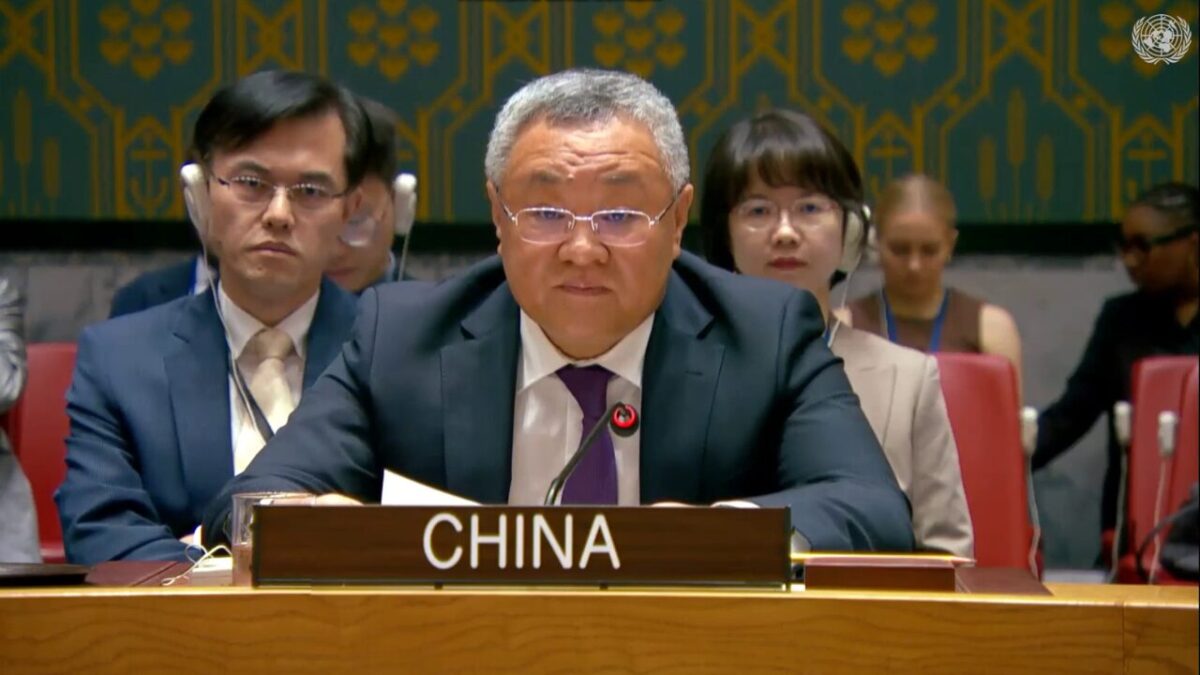China’s ambassador to the United Nations, Fu Cong, delivered a measured critique of the Taliban’s new morality law during a U.N. Security Council meeting on Afghanistan on Wednesday, calling for the protection of women’s rights while urging a balanced approach to the country’s challenges.
“The recent vice and virtue law has raised international concern,” Fu said, referencing the Taliban’s controversial decree. “We note that UNAMA is continuously tracking and studying its practical implications. We call on the Afghan interim government to pay attention to the legitimate concerns of the international community and take measures to effectively protect the basic rights of women and girls.”
Fu’s comments mark a rare public criticism from China regarding the Taliban’s policies, which have increasingly isolated Afghanistan on the global stage. However, the envoy tempered his remarks by emphasizing that the issue of women’s rights cannot be addressed in isolation.
“Women’s rights and interests cannot be realized in a vacuum, and microphone diplomacy will not help solve the problem,” Fu added. “We hope the international community will take a comprehensive and objective view of the situation in Afghanistan, supporting its peaceful reconstruction and economic recovery.”
The Taliban’s new law, made public on August 21, 2024, bans women from showing their faces or using their voices in public spaces, drawing widespread national and international condemnation. The law represents a further step in the erosion of women’s rights under Taliban rule, which has seen the group impose severe restrictions on women’s education, employment, and freedom of movement since regaining power in 2021.
Fu’s remarks reflect China’s cautious engagement with Afghanistan, where it seeks to balance concerns over human rights with its broader regional interests, including economic and security cooperation.





